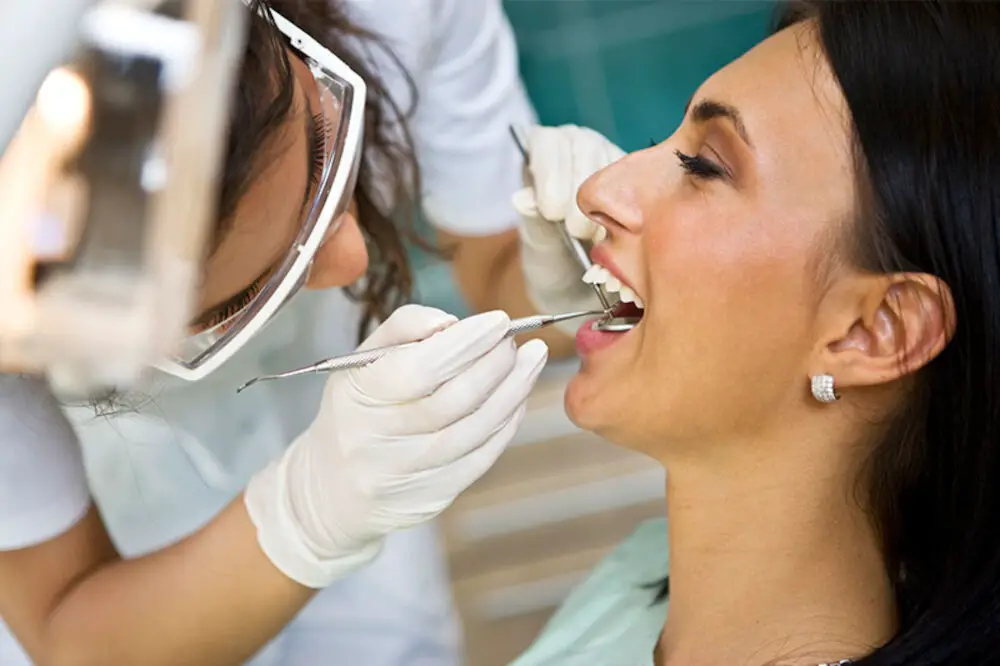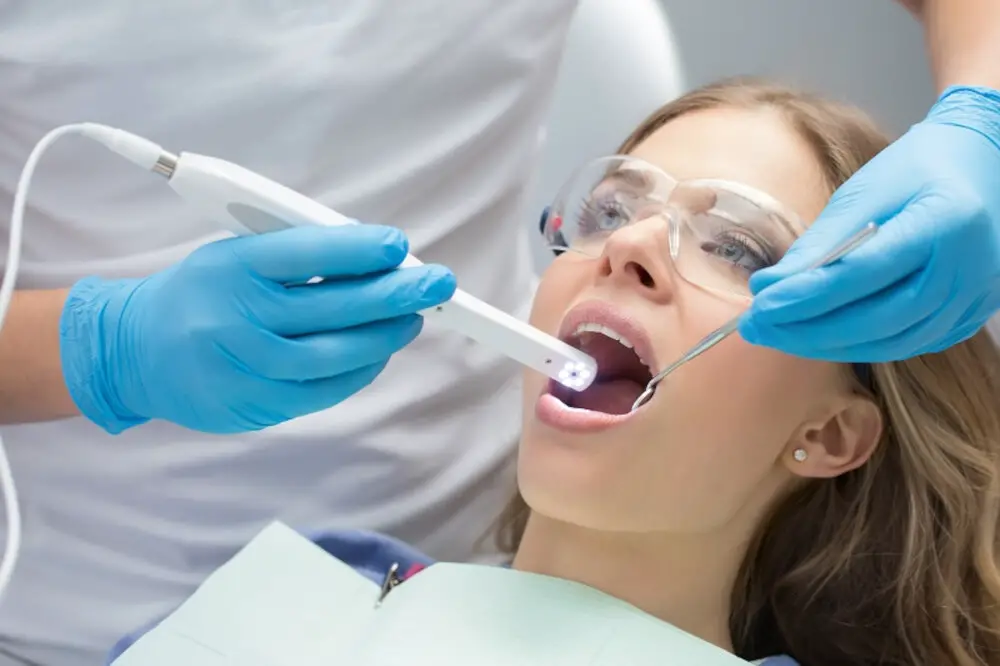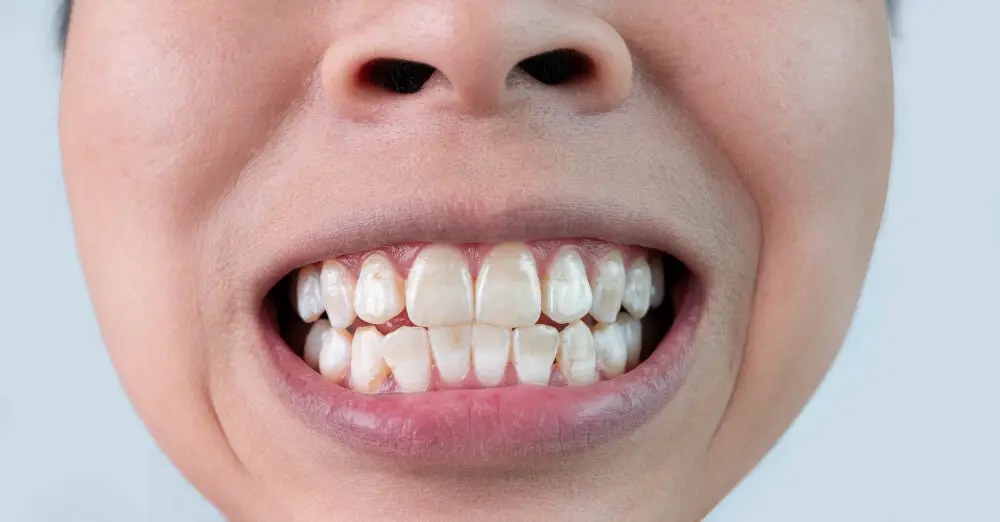Spice Up Your Life: A Guide to Eating Spicy Food After Wisdom Teeth Removal

Are you a spicy food lover who recently underwent wisdom teeth removal? If so, you might be feeling devastated at the thought of bland and flavorless foods for the next few days or even weeks. Fear not, as this guide is here to help you spice up your life post-surgery. While it’s crucial to follow your dentist’s instructions, you can still enjoy the heat and flavor of spicy food by making some necessary adjustments to your diet. Eating spicy food after wisdom teeth removal can be tricky, but it’s not impossible. Not only can it make your meals more exciting, but it can also help alleviate the pain and discomfort associated with the procedure. However, it’s essential to take things slow and gradually introduce spicy foods back into your diet to avoid any complications. With the right approach and a few tips and tricks, you can satisfy your cravings and enjoy your favorite spicy dishes while recovering from wisdom teeth removal. So let’s dive into the world of spicy food and explore how you can make it a part of your post-surgery diet.
Wisdom teeth, also known as third molars, are the last teeth to emerge in the back of the mouth. In many cases, they cause pain, infection, and other dental problems. In such cases, dentists recommend wisdom teeth removal. The procedure is usually done under local anesthesia, and the patient may experience some pain, swelling, and bleeding after the surgery. The recovery period can vary from a few days to several weeks, depending on the complexity of the extraction. During this time, patients are advised to avoid hard, crunchy, and spicy foods to prevent irritation and discomfort. However, once the healing process is complete, patients can resume their normal diet and even spice up their life with some hot and flavorful dishes.
Spice Up Your Life: A Guide to Eating Spicy Food After Wisdom Teeth Removal is an informative and comprehensive article that aims to provide the readers with a detailed guide on how to enjoy spicy food after wisdom teeth removal. The article covers a wide range of topics, from the benefits of spicy food to the precautions one needs to take while consuming it after the surgery. The author has provided valuable tips and tricks on how to gradually introduce spicy food into one’s diet, and has also suggested some mouth-watering recipes that are easy to make and perfect for those who love spicy food. Overall, the article is an excellent resource for anyone looking to add some spice to their diet after wisdom teeth removal.
When Can You Start Eating Spicy Food?

Spicy food lovers might wonder when they can start enjoying their favorite dishes after wisdom teeth removal. It’s crucial to wait a few days before resuming your regular diet, especially if you had a surgical extraction. The first two days after the procedure, stick to a soft and cold diet to avoid irritation or bleeding. You can gradually introduce easy-to-chew foods like mashed potatoes, soup, or scrambled eggs. However, you should avoid acidic, crunchy, or spicy foods that can aggravate the wound and cause discomfort. After the first week, you can start adding more solid foods to your diet. Still, it’s advisable to avoid spicy foods for at least two weeks or until your gums have healed completely. Spicy food can irritate the extraction site, cause pain, or even delay the healing process. You can start with mild spices and gradually increase the heat level as your mouth recovers. Keep in mind that it’s essential to listen to your body and avoid anything that causes pain, bleeding, or inflammation. With time, you’ll be able to enjoy your favorite spicy dishes again, but it’s crucial to be patient and follow your dentist’s instructions.
The healing process is a complex and dynamic phenomenon that involves a series of physiological and biochemical events aimed at restoring tissue integrity and function. After wisdom teeth removal, the body initiates a series of processes that aim to stop bleeding, reduce inflammation, and promote tissue repair. During the first 24-48 hours, the body forms a blood clot that covers the extraction site, preventing further bleeding and serving as a scaffold for new tissue growth. As the clot matures, the body starts to produce new blood vessels and connective tissue, which gradually replaces the clot with a new layer of tissue. Meanwhile, the immune system works to remove dead cells and debris from the extraction site and to protect the wound from infection. All these processes are regulated by a complex network of signaling molecules, enzymes, and cells, and can take several weeks to complete.
After undergoing wisdom teeth removal, it is crucial to follow a timeline for reintroducing spicy foods to your diet. It is recommended to wait at least three to four days before adding any spicy foods to your meals. During this time, it is important to stick to soft, bland foods to allow your mouth to heal properly. After the initial recovery period, you can gradually introduce mild spices such as cumin or paprika into your diet. It is advisable to wait until the two-week mark before consuming anything too spicy or hot, such as chili peppers or cayenne. Remember to listen to your body and go at your own pace when reintroducing spicy foods to your diet after wisdom teeth removal.
Testing your tolerance for spicy food after wisdom teeth removal can be a fun and exciting experience, but it’s important to do so safely and gradually. Start by incorporating milder spices, such as paprika or cumin, into your meals and gradually increase the amount and heat level over time. It’s also important to pay attention to your body’s signals and stop if you experience any discomfort or pain. Don’t forget to stay hydrated, as spicy food can cause dehydration. Finally, consider trying different types of spicy foods, such as Indian or Thai cuisine, to expand your palate and discover new flavor combinations. By following these tips, you can safely and enjoyably spice up your post-wisdom teeth removal diet.
Choosing the Right Spices

Spices have the power to transform a dish from bland to flavorful, but it’s important to choose the right ones, especially after wisdom teeth removal. Some spices can be too harsh on the sensitive areas in the mouth, causing discomfort and pain. When choosing spices, it’s important to consider their level of heat and how they will affect the healing process. It’s best to start with milder spices, such as cinnamon, nutmeg, and ginger, and gradually work your way up to hotter spices like cayenne pepper and chili powder. It’s also a good idea to avoid spices that are acidic, such as vinegar and citrus, as they can irritate the mouth and slow down the healing process. Aside from their heat level, spices also have different flavor profiles that can enhance certain dishes. For example, cumin has a warm, earthy flavor that pairs well with Mexican and Indian cuisine, while oregano has a slightly bitter taste that complements Italian dishes. It’s important to experiment with different spices to find the ones that work best for your taste preferences and the type of food you’re cooking. When in doubt, start with a small amount of spice and gradually increase it until you achieve the desired flavor. With the right spices, you can add flavor and excitement to your meals without sacrificing your comfort during the healing process after wisdom teeth removal.
Spicy foods are undoubtedly tempting, but they can cause discomfort and even pain when consumed after wisdom teeth removal. The heat from spices can trigger inflammation and irritation in the gums and oral tissues, making it difficult to heal properly. Therefore, it is advisable to avoid spicy foods for at least a week after the surgery. Some of the common spicy foods to avoid include hot sauces, chili peppers, wasabi, jalapenos, and curry. Additionally, foods that are highly acidic or crunchy should also be avoided as they can cause further irritation and delay the healing process. It is best to stick to soft and bland foods that are easy to chew and swallow until the gums have fully healed.
After wisdom teeth removal, it’s important to stick to a soft foods diet for the first few days to avoid any complications. However, that doesn’t mean your meals have to be bland and tasteless. Adding some spices to your meals can help enhance the flavor without compromising the healing process. Some recommended spices include ginger, turmeric, garlic, and cinnamon. Ginger and turmeric have anti-inflammatory properties that can help reduce swelling and pain. Garlic is known for its antibacterial properties, which can help prevent infections. Cinnamon can add a touch of sweetness to your meals without adding any sugar. Just be sure to avoid any spices that are too spicy, as they can irritate the sensitive area and slow down the healing process.
Preparing foods with mild spice levels is a wise choice after wisdom teeth removal. While spicy foods can add a kick of flavor to your meals, they can also irritate your sensitive gums and cause discomfort. Opting for milder spices like ginger, garlic, and cumin can still add depth and complexity to your dishes without overwhelming your taste buds. Consider using herbs like basil or parsley to add freshness and brightness to your meals. You can also experiment with different cooking techniques, such as roasting or grilling, to bring out the natural flavors of your ingredients. With a little creativity and a gentle touch, you can still enjoy flavorful meals while allowing your mouth to heal after your wisdom teeth extraction.
Managing Discomfort

After wisdom teeth removal, it is common to experience discomfort and pain for several days. This discomfort can make it challenging to eat and drink, and it can be frustrating to miss out on your favorite foods. However, with some management techniques, it is possible to reduce your discomfort and enjoy your meals again. Some of the ways to manage discomfort include taking pain relief medication as prescribed by your dentist or oral surgeon, applying ice packs to the affected area, and avoiding hard or chewy foods that may irritate the extraction site. Additionally, you can try eating soft and mild foods that are easy to chew, and avoid consuming too hot or too cold drinks that may cause sensitivity or pain. Incorporating spicy food into your diet is a great way to add some flavor and variety to your meals after wisdom teeth removal. However, it is essential to manage the discomfort that comes with it. One way to do this is by starting with milder spices and gradually increasing the heat level as your mouth heals. You can also try eating spicy food with yogurt or milk, as the dairy can help to counteract the heat. Another tip is to avoid eating spicy food on an empty stomach, as this can increase the likelihood of discomfort or heartburn. By managing your discomfort and gradually incorporating spicy food into your diet, you can enjoy a flavorful and satisfying post-surgery diet.
Eating spicy foods can be a delightful experience for those who enjoy the heat, but it can also be a painful one for those who don’t. If you’ve recently had your wisdom teeth removed and are craving something spicy, there are a few things you can do to manage the discomfort. Firstly, start with milder spices and work your way up gradually. This will give your taste buds time to adjust to the heat. Secondly, try pairing spicy foods with something cooling, such as yogurt or a glass of milk. These dairy products contain casein, which helps to neutralize the capsaicin in spicy foods. Finally, if the heat becomes too much to handle, don’t be afraid to take a break and let your mouth cool down. Remember, eating spicy food should be enjoyable, not painful!
Burning sensations can be uncomfortable and painful, especially after wisdom teeth removal. However, there are several remedies that can help alleviate the discomfort. One of the most effective remedies is to rinse your mouth with salt water. This helps to reduce inflammation and kill bacteria that may be causing the burning sensation. Another remedy is to apply a cold compress to the affected area. This can help to numb the area and reduce swelling. Additionally, over-the-counter pain relievers such as ibuprofen or acetaminophen can be taken to help reduce pain and inflammation. It is important to consult with your dentist or doctor before taking any medication to ensure that it is safe for you.
To prevent irritation and inflammation after wisdom teeth removal, it is essential to follow a few simple steps. Firstly, avoid consuming spicy foods for at least a week after the procedure. Secondly, rinse your mouth with saltwater regularly to reduce swelling and prevent infection. Thirdly, avoid smoking or using tobacco products as they can delay the healing process and increase the risk of infection. Fourthly, avoid consuming hard, crunchy, or sticky foods that can damage the surgical site. Lastly, maintain good oral hygiene by brushing and flossing gently and regularly to prevent bacteria buildup. By following these simple steps, you can ensure a smooth and speedy recovery from wisdom teeth removal.
Gradually Increasing Spice Levels

Gradually increasing spice levels is essential when it comes to consuming spicy food after wisdom teeth removal. Starting with mild spices like paprika or cumin can help to acclimate your taste buds to the heat. As your tolerance increases, you can move on to spicier dishes like chili or curry. This gradual approach will not only prevent any discomfort or pain, but it will also allow you to enjoy the flavors of the dish more thoroughly. It is important to note that everyone’s tolerance for spice is different, so it’s crucial to listen to your body and not push yourself too far too quickly. It’s also a good idea to avoid extremely hot spices like ghost pepper or habanero until you feel comfortable with milder spices. Remember, the goal is to enjoy the dish without compromising your oral health or comfort. Gradually increasing spice levels will not only make the experience more enjoyable but also ensure a smooth recovery from wisdom teeth removal.
Gradual spice level increase is a crucial aspect of incorporating spicy food into your diet after wisdom teeth removal. It is essential to start with mild spices and gradually increase the intensity as your taste buds adjust to the heat. This method allows your mouth to acclimate to the heat and reduces the risk of discomfort or pain. The gradual increase in spice level allows you to enjoy the flavors of the food without overwhelming your mouth or causing irritation. With patience and persistence, your tolerance for spicy food will increase, and you can gradually add more heat to your meals.
After wisdom teeth removal, it is important to gradually increase the spice level of your food. The timeline for increasing spice levels can vary from person to person, but it typically takes about a week or two for the mouth to fully heal. During the first few days, it is recommended to avoid spicy foods altogether to prevent any irritation or discomfort. After that, start with mild spices such as paprika or chili powder and gradually increase the heat level as your mouth feels comfortable. It is important to listen to your body and not push yourself too quickly as this may cause pain or inflammation. By slowly reintroducing spice into your diet, you can enjoy the flavors and benefits of spicy food without any negative side effects.
After wisdom teeth removal, it’s important to monitor your tolerance for spicy foods and adjust accordingly. While some people may be able to handle spicy foods right after surgery, others may need to wait a few days or even weeks before attempting anything too hot. It’s also important to start with mild spices and gradually work your way up to hotter ones as your tolerance improves. Pay attention to any discomfort or pain while eating spicy foods and adjust accordingly. Don’t push yourself too hard, as it can lead to complications and prolong the healing process. With patience and careful monitoring, you can safely enjoy spicy foods after wisdom teeth removal.
The guide \Spice Up Your Life: A Guide to Eating Spicy Food After Wisdom Teeth Removal\ provides a comprehensive overview of the dos and don’ts of consuming spicy food after wisdom teeth extraction. The author emphasizes the importance of following a specific diet plan to avoid aggravating the affected area and causing discomfort. The guide also includes tips on how to gradually introduce spicy food back into the diet, starting with milder flavors and building up to spicier options. Furthermore, the article provides suggestions on alternative seasoning options to add flavor without relying on spiciness. Overall, the guide aims to help individuals who love spicy food to continue enjoying it while recovering from wisdom teeth removal.
Going through wisdom teeth removal can be a daunting experience, but it doesn’t have to be boring. When it comes to diet, it can be easy to fall into a routine of bland, soft foods, but there are plenty of ways to add some excitement and flavor to your meals without risking your recovery. By incorporating spices like ginger, turmeric, and garlic, you can not only add some kick to your dishes but also take advantage of their anti-inflammatory properties to aid in your healing process. Don’t be afraid to experiment with different spice blends and seasonings to find what works best for you. With a bit of creativity and caution, you can enjoy delicious and stimulating meals while still allowing your mouth to heal properly.
Conclusion

In conclusion, eating spicy food after wisdom teeth removal can be challenging, but with the right techniques and precautions, it is possible to enjoy the flavors and benefits of these delicious foods. It is essential to start with mild spices and gradually increase the heat level over time. Additionally, chewing on the opposite side of the mouth and avoiding hard or crunchy foods can help prevent any irritation or discomfort. It’s important to listen to your body and take things slow to avoid any complications during the healing process. Finally, remember that everyone’s healing process is different, and consulting with your dentist or oral surgeon can provide you with personalized advice on how to navigate this exciting culinary adventure. So, spice up your life and enjoy some flavorful and spicy foods after wisdom teeth removal, but always remember to do so with caution and care.







